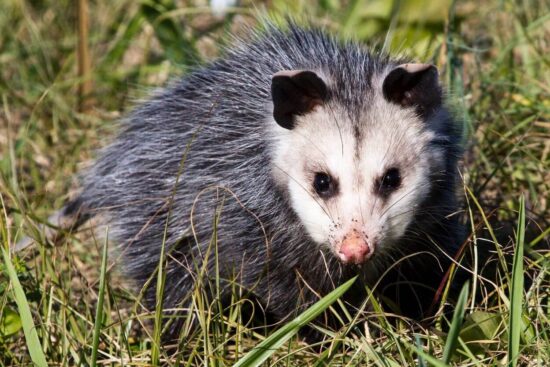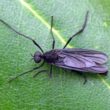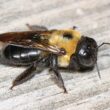You’re taking out the trash at night when you spot a gray, rat-like creature with beady eyes staring back at you. Your first thought? “Does that opossum have rabies?”
For decades, the answer seemed simple. Everyone “knew” that opossums couldn’t get rabies because their body temperature was too low. Then in 2023, scientists in Brazil made a shocking finding that turned everything upside down.
Table of Contents
What Makes Opossums Special Against Rabies
Opossums have something unique that helps protect them from rabies: their body temperature runs much cooler than other animals. While most mammals have body temperatures around 98.6°F, opossums stay between 94-97°F. This might not sound like a big difference, but it makes a huge impact on whether the rabies virus can survive and spread in their bodies.
Think of it like trying to grow a tropical plant in a cold room. The rabies virus needs warm temperatures to multiply and move through an animal’s nervous system. In an opossum’s cooler body, the virus simply can’t grow and spread the way it does in other animals. This temperature difference affects how proteins work and how cells function, creating multiple barriers that stop infections from taking hold.
Research has shown that even when scientists artificially put rabies virus into opossum tissue samples in labs, the virus fails to multiply fast enough to cause a real infection. The opossum’s immune system also works really well at these cooler temperatures, while harmful germs struggle to get started.
The Groundbreaking Case That Changed Everything
For decades, scientists believed opossums were basically immune to rabies. Then in 2021, researchers in Brazil found something that shocked the scientific world. A female white-eared opossum was found dead in a park in Campinas, Brazil, and tests showed it had died from rabies.
This was huge news because it was the first documented case that proved opossums can get rabies from bats. The opossum had the same type of rabies virus that fruit-eating bats carry. This discovery showed that while opossums can get rabies, it likely happens when they interact with infected bats in urban areas where both animals live close together.
The case was especially important because it happened in a city environment. Unlike wild areas where opossums might not survive encounters with rabid animals, urban settings create different conditions where opossums might actually survive contact with infected bats long enough for the virus to take hold.
- These are easy to feed sticks, 3/4 inch long x 1/8 inch thick.
- Suitable for all kinds of insectivores including sugar gliders, hedgehogs, opossums, skunks, and more.
- 100% natural – no added colors, flavors, or preservatives.
- Veterinarian Recommended. Made in the USA.
Old Beliefs vs New Science
Back in the 1960s, scientists did experiments that suggested opossums were resistant to rabies infections. The main study about rabies in Virginia opossums was published by Thomas R. B. Barr in 1963, and that research is over 60 years old now! For decades, people believed this meant opossums couldn’t get rabies at all.
However, recent research shows the picture is more complicated. While opossums can get rabies, they are incredibly resistant to it. The difference between being resistant and being completely immune is important for public health and safety.
A study in São Paulo state found that 1.6% of opossums tested had been exposed to the rabies virus, which means they had contact with it even if they didn’t get sick. This shows that opossums do encounter rabies in the wild, but their bodies are usually able to fight it off.
Why People Think Normal Opossum Behavior Means Rabies
Many people see an opossum acting strangely and immediately think “rabies!” But most of the time, the opossum is just being a normal opossum. These animals have several behaviors that people mistake for signs of sickness.
When opossums feel threatened, they hiss, drool, and sometimes “play dead” by falling over and staying very still. This playing dead behavior is called thanatosis, and it’s a natural defense mechanism. The opossum isn’t choosing to do this; it happens automatically when they’re scared, kind of like fainting.
Opossums are also naturally active at night, so seeing one during the day might seem weird, but it doesn’t necessarily mean the animal is sick. Sometimes they just need to find food or water, or they might have been disturbed from their sleeping spot.
The Real Numbers About Opossums and Rabies
When you look at actual surveillance data from health departments, the numbers tell a clear story about how rare rabies is in opossums. In 2021, out of all the wildlife cases of rabies reported in the United States, only one involved an opossum.
A long-term study in Florida tested thousands of opossums for rabies over 30 years, and none of them tested positive. This kind of data shows just how unlikely it is to encounter opossums with rabies in the wild.
Compare this to other animals: raccoons made up 29% of wildlife rabies cases, bats accounted for 35%, and skunks represented 17%. These numbers show that while opossums can get rabies, they’re much less likely to have it than other common wildlife.
Why the Brazilian Case Matters for Cities
The Brazilian case taught scientists something important about how rabies might spread in city environments. In urban areas, opossums and bats often live in the same spaces, creating opportunities for the virus to jump between species.
The researchers found that the infected opossum was in an area with lots of fruit-eating bats that also carried rabies. They think the opossum probably got infected through some kind of interaction with these bats. This is different from rural areas where opossums might not survive encounters with larger rabid animals like raccoons or foxes.
Another concerning finding was that 15 out of 22 opossums in the study had been killed by dogs. This creates a potential “bridge” for rabies to spread from wildlife to pets and then possibly to humans. When dogs attack opossums with rabies, the dogs could get infected and then spread the disease further.
How Opossums Compare to Other Animals
While the idea that opossums can get rabies might be surprising, they’re still much safer than other wildlife when it comes to rabies risk. Raccoons, skunks, and foxes are the animals that pose real rabies threats to about 75% of Americans.
Wild animals cause more than 90% of all rabies cases in the United States. Bats are responsible for 35% of cases, raccoons for 29%, skunks for 17%, and foxes for 8%. Opossums barely register in these statistics because cases involving opossums with rabies are so incredibly rare.
This means that if you see an opossum in your yard, you don’t need to panic about rabies the way you might if you saw a raccoon acting strangely. However, it’s still smart to keep your distance from any wild animal and make sure your pets are up to date on their rabies vaccinations.
Staying Safe Around Opossums
Even though opossums can get rabies in extremely rare cases, this doesn’t mean people should be afraid of them. The key is understanding the real risk level and taking sensible precautions.
First, never try to handle any wild animal, whether it’s an opossum or anything else. Wild animals can carry various diseases, and they might bite or scratch if they feel threatened. If you see an opossum that seems sick or is acting very unusually, contact your local animal control or wildlife officials.
Make sure your pets have current rabies vaccinations. This protects them from rabies no matter what animal they might encounter. Keep pet food indoors so it doesn’t attract wildlife to your property.
If an opossum is living under your porch or in your shed, don’t try to remove it yourself. These animals usually move on by themselves after a few days. If you need help, contact a licensed wildlife control professional who knows how to handle the situation safely.
Remember that just because opossums can get rabies doesn’t mean you should assume every opossum has it. The risk is extremely low, and these animals actually provide benefits to your neighborhood by eating ticks and other pests.
What Scientists Are Learning for Medicine
The fact that opossums are so resistant to rabies has caught the attention of medical researchers. Scientists want to understand exactly how opossum bodies fight off the rabies virus so well. This knowledge could help them develop better rabies vaccines and treatments for humans and pets.
Current rabies vaccines work by training the immune system to recognize the virus, but they don’t copy the opossum’s natural defense methods. If researchers can figure out the specific antibodies and cellular mechanisms that make opossums so resistant, they might be able to create treatments that provide longer-lasting and more complete protection.
This research could also help with other diseases that affect the nervous system. The opossum’s natural defenses might hold secrets that could help treat viral encephalitis, meningitis, or other brain infections.
The Bigger Picture About Opossums
Beyond the rabies question, opossums actually help keep neighborhoods healthier in other ways. Unlike many animals that carry ticks and can spread Lyme disease, opossums eat more than 90% of the ticks they encounter. Some scientists say they can kill up to 95% of ticks that try to feed on them and eat over 5,000 ticks in a single season.
This tick-eating behavior, combined with their resistance to rabies, makes opossums valuable allies in controlling disease. They’re like nature’s cleanup crew, removing both disease-carrying insects and potential sources of infection from the environment.
Even though opossums can get rabies, they’re much more likely to help prevent other diseases than to spread rabies themselves. This is why many wildlife experts encourage people to appreciate these unique animals rather than fear them.
Understanding the truth about opossums and rabies helps people make better decisions about wildlife encounters. While it’s important to know that opossums can get rabies, it’s equally important to understand just how rare this actually is. These remarkable animals deserve recognition for their positive contributions to our ecosystems, not fear based on outdated myths.
FAQ
Can opossums get rabies?
Yes. They can get rabies, but it is extremely rare compared to animals like bats, raccoons, and skunks.
Why is rabies so rare in opossums?
One reason is their lower body temperature, which may make it harder for the rabies virus to thrive.
Has an opossum ever tested positive for rabies?
Yes. There are documented cases, including a confirmed case reported by CDC researchers in Brazil.
Should I worry if I see an opossum during the day?
Not automatically. Opossums can be seen in daylight for normal reasons like searching for food or being disturbed.
What behavior do people mistake for rabies in opossums?
Hissing, drooling, and playing dead can be normal defensive behavior, not rabies.
Can opossums spread rabies to pets or humans?
In theory, any infected mammal could, but because rabies in opossums is so rare, the real risk is usually much higher from bats, raccoons, skunks, and foxes.
What should I do if an opossum seems sick or unusually aggressive?
Keep your distance, keep pets inside, and call local animal control or a licensed wildlife professional to handle it safely.
Do I need a rabies shot if an opossum bites or scratches me?
Treat any bite or scratch seriously. Wash the wound well and contact a medical professional or local health department right away for guidance on rabies exposure. (Post exposure decisions depend on local protocols and the situation.)



